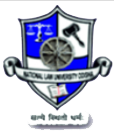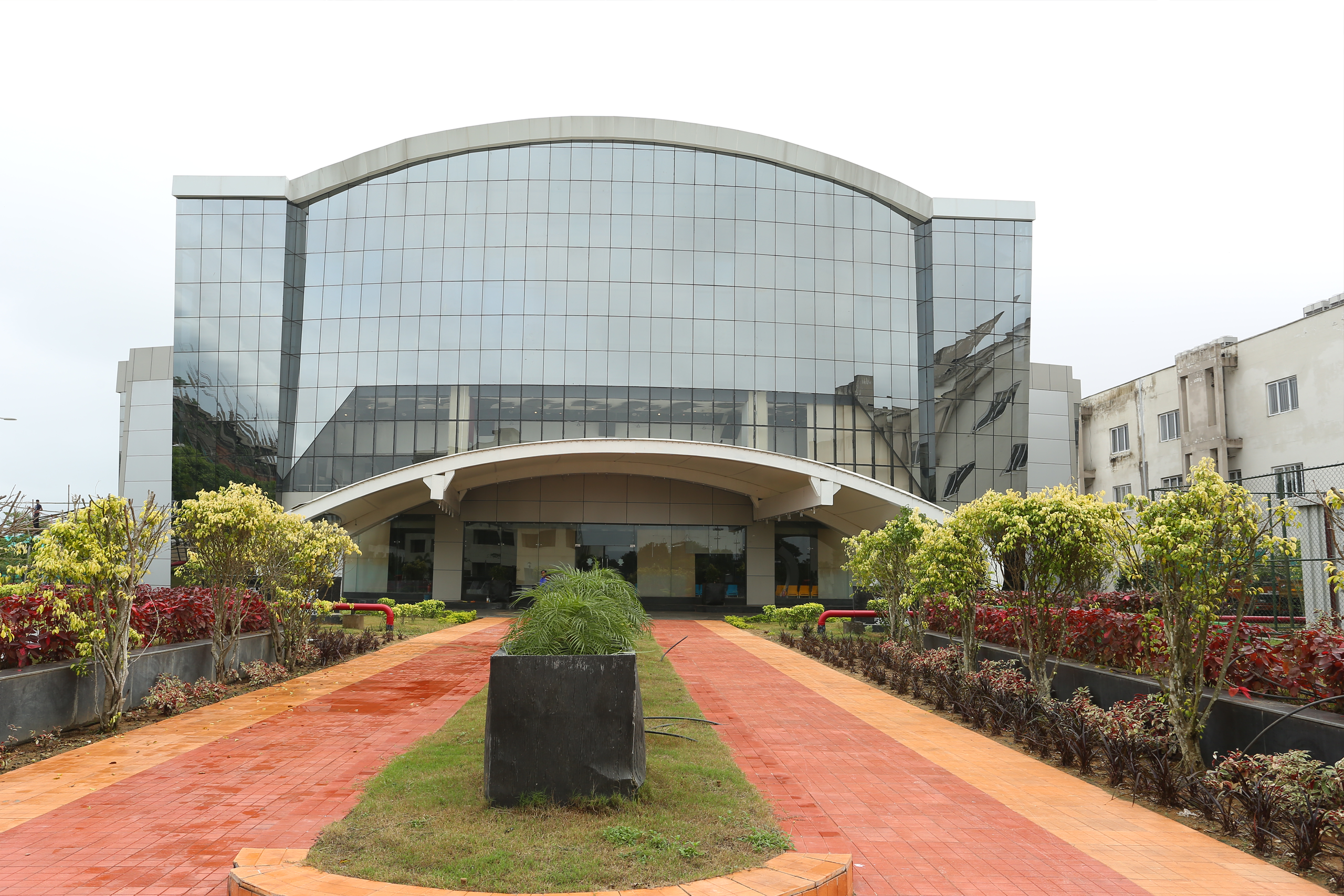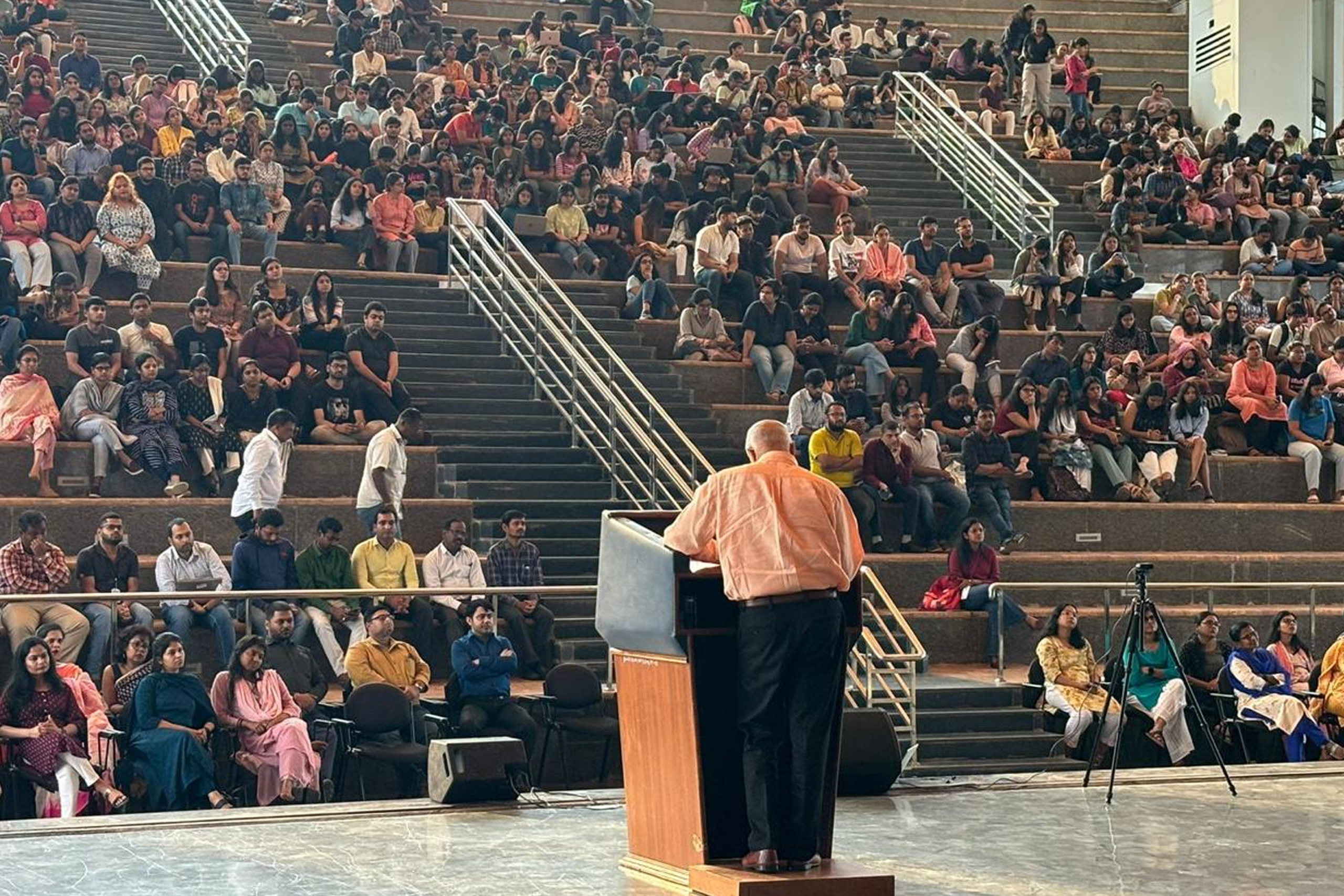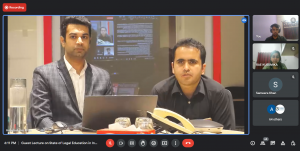“A guest lecture on ‘State of Legal Education in India – Social Relevance, Accessibility and Inclusivity’.”
14 Feb 2023
Date: 11.02.23???????????????????????Platform: Video Conferencing (Google Meet)? ?????????????????????????
The Constitutional Law Society of National Law University Odisha successfully organized a guest lecture on the topic ‘State of Legal Education in India – Social Relevance, Accessibility and Inclusivity’. The lecture was delivered by Mr. Rahul Bajaj and Mr. Husain Aanis Khan. Mr. Bajaj is an attorney at Ira Law and a Senior Associate Fellow at Vidhi Centre for Legal Policy. Mr. Khan is a research fellow in the Legal Design and Regulation team at Vidhi Centre for Legal Policy.
Mr. Rahul Bajaj started the lecture session by focusing on social relevance and accessibility in landscape of legal education. He highlighted the problems faced by students in law schools due to exclusionary facets such as disability. He explained how differently abled people struggle to be a part of the social mainstream through everyday examples.
He asked a few questions to decipher students’ ground reality concerning accessibility. He prompted attendees to share their own real-life experiences involving problems faced by differently people. The problems included but were not limited to not being able to learn things properly due to the teaching pedagogy not being disabled-friendly. Furthermore, through the raise of hands, it was observed that the percentage of people who have either seen disabled people taking part in activities or have themselves taken part with them is quite low.
To address the problem of image accessibility, document accessibility, and physical accessibility, he offered a few solutions. To deal with the problem of image accessibility, he urged the attendees to think about providing an image description so that people with vision disabilities can understand the image through the description. The problem of document accessibility can be solved by merely creating a searchable PDF instead of an image-based PDF. Additionally, he highlighted that the issue of physical accessibility can be solved only through collective action on a large scale as many places are still not disabled-friendly. To substantiate his point, he gave the example of Indian court premises.
After Mr. Bajaj covered the broad pointers under accessibility issues, the lecture was continued by Mr. Husain Aanis Khan, who covered the topic from the perspective of inclusivity. He commenced his lecture session with the purpose of broadening the view on access to legal education.
Mr. Khan introduced three stages to the problem of accessibility in legal education. These are:
- Pre-Admission Stage: This stage (also understood as the Pre-Action Stage) can be categorised as two parts. The first, where students do not appear for law examinations like CLAT in the first place. The reason for this is two-fold. One, the fees of such examinations is extremely high, especially for a student coming from a low-income background. Two, they do not see a B.A., LL.B. degree as a good enough return on investment. The second part relates to securing a seat in any of the top National Law Universities. There is a deeper understanding to this than just “how meritorious a student is”. Mr. Khan explained how a lot of students who come from disadvantaged sections of the society face challenges socially which translates into their educational journey. It is important to understand that if a student is overcoming social barriers to reach a similar, if not the same, stand as a student who had a comparatively easier journey, should be given the same standing and chance to compete further. This is because that student has not just shown that they are academically meritorious but they also possess the ability to overcome social pressures and differences.
- Admissions Stage: This stage begins with the question of attending a law school after getting through the examination. Mostly, students are doubtful about the fees and the inclusivity in law schools. A lot of times, students are unable to finance their education which leads to, as Mr. Khan said, the premier law schools becoming “lands of the rich”.
- Post-Admission Stage: After students from lesser privileged background get through the first two stages, they face Post Admission Exclusion in colleges. This is not just by their peers; it also comes from employers and even non-human aspects like infrastructure! Mr. Khan points out how it becomes difficult for a lot of students to have a healthy social life, given its expenses.
Further, Mr. Khan talked about two schools of thoughts which try to provide courses of action that are explored to improve accessibility to legal education in the country. The first one being, removing merit as a basis of accessibility and focussing on just giving equal representation to all in the legal arena. However, Mr. Khan disagrees with this ideology. The other ideology, which he supports, is to understand and acknowledge that merit is an important basis of the filtration process in any field, but it should be complemented with the acceptance and inclusion of people from under-represented backgrounds and social divisions.
With students joining from various law schools, Mr. Khan and Mr. Bajaj concluded the lecture by taking questions from the audience and addressing problems faced by students in real lives. The guests were delighted to see the enthusiasm of the audience in making small actions as a part of their routine to make legal education and the profession of law equally accessible for their peers.






